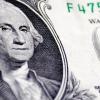

| Online: | |
| Visits: | |
| Stories: |

| Story Views | |
| Now: | |
| Last Hour: | |
| Last 24 Hours: | |
| Total: | |
Open Your Eyes: Social Democracy is Collapsing
(From FEE)
By way of background, at the end of the Second World War, the intellectual and political elites in the United States rallied around the idea that ideology was dead. The classic statement summing up this view in book form came in 1960: The End of Ideology by Daniel Bell. A self-described “socialist in economics, a liberal in politics, and a conservative in culture,” he said that all wild-eyed visions of politics had come to an end. They would all be replaced by a system of rule by experts that everyone will love forever.
To be sure, the ultimate end-of-ideology system is freedom itself. Genuine liberalism (which probably shouldn’t be classified as an ideology at all) doesn’t require universal agreement on some system of public administration. It tolerates vast differences of opinion on religion, culture, behavioral norms, traditions, and personal ethics. It permits every form of speech, writing, association, and movement. Commerce, producing and trading toward living better lives, becomes the lifeblood. It only asks that people – including the state – not violate basic human rights.
But that is not the end of ideology that Bell and his generation tried to manufacture. What they wanted was what is today called the managerial state.
http://www.againstcronycapitalism.org/
Source: http://www.againstcronycapitalism.org/2017/04/open-your-eyes-social-democracy-is-collapsing/


